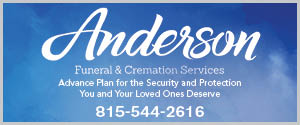![]() The statistics on opioid addiction will break your heart.
The statistics on opioid addiction will break your heart.
Every day, 91 Americans die from an opioid overdose, according to the Centers for Disease Control and Prevention.
The American Society of Addiction Medicine reports drug overdose is the leading cause of accidental death in the U.S., with 52,404 lethal drug overdoses in 2015. Of those deaths, 20,101 were related to prescription pain relievers, and 12,990 overdose deaths related to heroin in 2015.
Addiction to heroin or narcotic painkillers is devastating. Not just for the individual suffering, but for their loved ones as well.
Usually, it’s extremely difficult to break free of the deadly grip of opioids. One of the ways to go about a recovery could be to have an addiction treatment done. For instance, 2nd Chance Clinic is known to offer addiction treatment to individuals who are hoping to break free from the shackles of addiction and enjoy a clean life. They happen to offer medication Assisted Treatment, Targeted Case Management, Individual Substance Use Counseling, and Group Substance Use Counseling. Those interested can check out 2ndchanceclinics.com/services/ to learn more about them.
Anyway, at times, addiction is so powerful, therapy alone often isn’t enough. In some cases, rehab might be one of the only ways to become better, especially if the addiction has grown in severity. However, most people are reluctant to get rehabilitated because they are not ready to give up the drug that they abuse. What they perhaps do not realize is that organizations like Innovative Health Systems (https://www.innovativehealthsystemsinc.com/) tend to exist purely to help out troubled individuals suffering from addictions, not to cause problems for them. This kind of avoidant behavior from the drug abuser’s side can only lead to further problems. Something has got to change.
We started work to address the opioid addiction problem in early 2016, when we commissioned an Edward-Elmhurst Opioid Task Force to focus on the issue, both in our patients and in our communities.
The task force includes representatives from medical staff, behavioral health and pain management. This team is taking a holistic approach to address the problem, including physician prescribing practices, alternative methods of pain management and management of the addiction through proper Drug Addiction Help.
Now we’re taking a step toward a bold, promising treatment–Medication Assisted Therapy. Edward-Elmhurst Health recently opened a new medication-assisted therapy (MAT) clinic for those who want to kick opioid addiction.
The medication suppresses withdrawal symptoms and stifles cravings for the drug. That, combined with therapy to address the underlying trigger for the drug use, has been successful in helping people get their lives back from opioids.
The MAT clinic at Linden Oaks Behavioral Health is open to anyone who wants to discontinue the use of heroin or prescription painkillers such as Norco, Oxycodone and Fentanyl. No doctor referral is needed, you can just walk in.
Earlier this summer, CNN reported that MAT is considered the “gold standard” of treatment for opioid addiction.
Medicine is more effective than therapy alone when treating opioid addiction, says Aaron Weiner, Ph.D., Director of Addictions Services at Linden Oaks Behavioral Health.
Individual therapy, group counseling, support groups and 12-step programs help a lot of people break free of addictions. But opioid withdrawal symptoms are so intense that many people aren’t able to stick with the program.
“With the withdrawal symptoms and cravings controlled, the person can focus on getting well,” Weiner says. “For the social and psychological aspects of addiction, the therapy groups are the primary change agent.”
And taking medicine to treat an opioid drug addiction isn’t counterproductive. People don’t become addicted to the medicine – they get no high from it. Through the clinic, they’re prescribed the minimal amount needed to help them get through the brutal withdrawal so they can focus on healing.
The National Institute on Drug Abuse calls MAT an effective treatment for opioid addiction. We agree.
You can get your life back from addiction. Taking the step toward help may be scary, but it’s worth it.
Schedule a free, confidential assessment by calling 630-305-5027. Tell them that you would like to find out if the MAT Clinic is right for you.
You don’t have to let drug abuse and addiction control your life. Learn more about addiction treatment at Linden Oaks Behavioral Health, eehealth.org/services/behavioral-health/specialties/addiction/addiction-treatment/substance-abuse.
Read more Healthy Driven blogs at EEHealth.org/blog.


